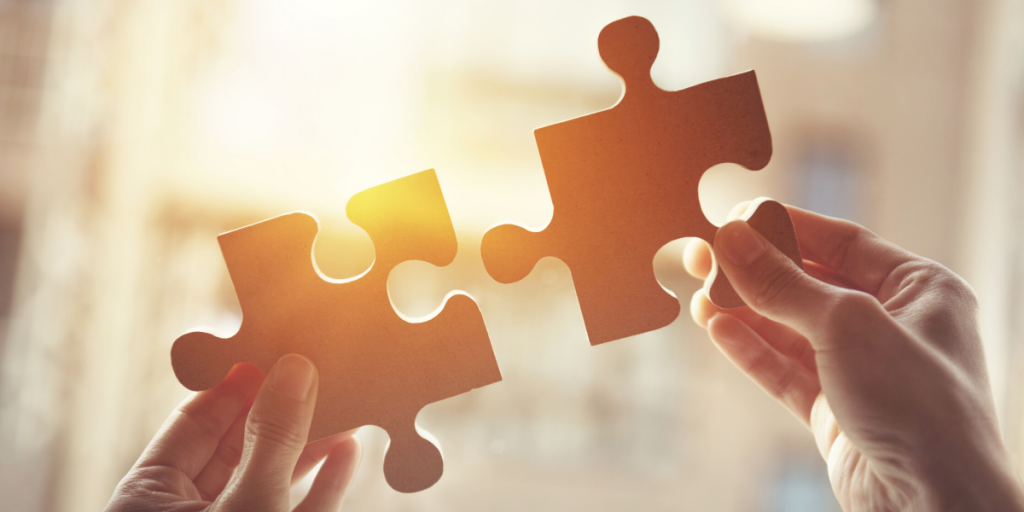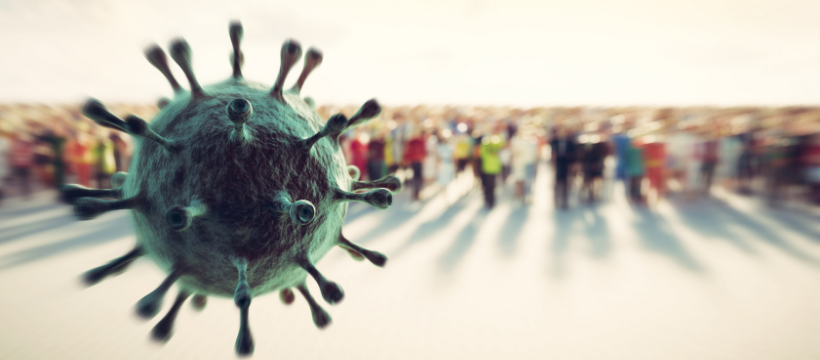Evolution progresses in spiral way, which means that the mankind moves forward and development stages repeat themselves or are very similar to each other. In 21st century, on the background of growing technological and personal development achievements, equipped with personal computer and smartphone, human had to lock himself in “the cave” again and this way, we temporarily stopped and only on expense of intellectual resource, kept developing the idea of inhabiting parallel planet to live. People hope to get routine everyday life back where one has breakfast in the morning, then heads over to work, then goes to café for lunch, from work to market, from market to home, from home to a bar and then makes breakfast again in the morning. Humans have been building this simple life chain for centuries, eventually developed it and now nobody wants to start over. Pieces of the chain are tightly connected and are independently operational units, small, medium and large business fields the majority of which are now in waiting mode. We were interested to find out whether the perception of social responsibility has changed in the crisis or not. We conducted in-depth interviews with representatives of companies of different size operating in Georgia, based on which we created the following anthropological picture of perceptions:
1. In own cave
Sense of danger and unclear situation outside, made human find a shelter in the cave and return back there every time as he already knew the way. Having a roof as an opportunity to protect from natural conditions and hide from outside threat, brought a human the feeling of getting used to own place – one specific environment and he found more or less calmness in this environment. People left alone because of the pandemic headed over to their homes – their forever and well-known cave. Corporations are managed from homes, so in the beginning of the crisis, companies used one of the topical, practically inevitable form of social responsibility – to “transfer” employees to their homes and made sure they stayed there. According to inquired respondents, they made the decision of terminating their work in real regime and switching employees to remote mode alongside the recommendations issued in the country. Quality of social responsibility is determined based on when the business implemented the said – when the relevant recommendations were issued or when the pandemic was already severely spread. But for now when every corporation whose work can be done remotely at least partially, tries to manage remote work of their employees in a way not to lose the sense of team work neither to decrease the interest towards work. This form of corporate responsibility is ultimately based on caring for health of one person and has various forms in various corporations – this could be social package of unified insurance developed in the crisis or equipping employees with protective items at home or organizing special trainings so that when performing work (signing agreements in old form) their health is maximally protected. The least company can do to this regard is to provide licensed version of Zoom meetings absolutely necessary for remote work so that employees can easily work from home.
2. The scene of hunting mammoths
After getting known with the cave and settling down in it, man started using this cave as a mean of communication. First historically proven ancient drawings on cave walls depicted what man saw and did beyond the cave. Man used to scrap mammoths on cave walls for two reasons – in order to classify (in simple form) i.e. to distinct mammoth from tiger and in order to share it for others. Depicting actions helped human to better plan hunting, have better perspective of animal anatomy, simple ways of hunting them, to do its job properly. To become a “professional” and then share this plan and knowledge with others so that others could hunt better too. In this context, revaluation of social responsibility is defined with the motif to save yourself, to continue work in future and to save neighbor companies as hunting is better together, chances are higher to hunt bigger animal and survive if attacked. As believed by inquired representatives of businesses, influence of international B2B corporate responsibility is eventually taking its position in Georgia. The majority of respondents representing large businesses emphasize importance of supporting quick development and sharing specific advices in crisis, necessity of which drastically changes in narrative of small business representatives. Respondents confirm the assumption that in this context, small and medium size business are most vulnerable, this is why social responsibility of large business is to offer them support. From Georgian reality, so far these are only a few examples such as support in establishment of e-commerce platform or providing consulting on business matters. Launch of ACT business consulting platform served exactly this purpose – to share our knowledge and experience to those who are in desperate need of our support now to survive in long-term perspective and to turn into large companies commissioning us after this crisis so that we hunt down mammoth together.
3. Shared bonfire
After discovering the fire, man started using it for different purposes. In order not to lose time for starting a fire every single time, he tried to have it on all the time. As together with people “making friends”, perimeter of the caves narrowed, fire appeared in the center of the caves and each member had the responsibility to keep the shared bonfire on. The most frequent and prevalent form of social responsibility is to contribute in this common bonfire, if we imagine that fire is country’s economy or common welfare, corporate responsibility of company is to support separate segments of the society around this common fire (to help vulnerable groups, to support sport or cultural activities). During Covid-19 crisis this had a form of creating unified platform of fight against pandemic and millions of GEL transferred to it. Corporations donated money for common welfare. In addition to this, in separate cases companies financially supported or if relevant to their field, provided their product (food, fuel) to National Center of Disease Control and Infectious Hospital as frontline units in fight against Coronavirus. As explained by companies selling construction and oil products, such purposeful use of money simplifies engagement in social responsibility activity and ensures them from making a mistake – define the most vulnerable group and its needs in this crisis. This form of CSR, similar to its symbolic face – fire, has an effect to spread, on one side, it sets an example for other corporations and motivates them to donate money to cope with the common enemy and on the other side, if we generalize on the example of the specific construction company, CSR can be implemented through such activities which could involve not only corporations but ordinary citizens while business would act as a mediator. For instance, if you purchase real estate under the promotion, part of the amount you pay will be transferred to Covid-19 fund.
4. Thigh bone
A student once asked famous American anthropologist Margaret Mead what she considered to be the first evidence of civilization. Among expected answers from scientific point of view student considered that Mead would say clay vessel, hunting tools or fire as a mean of communication, but anthropologist answered: a human thigh bone with a healed fracture found in an archeological site 15, 000 years old. This bone is the largest in human body, forms the hip joint which is absolutely necessary for a human to walk, if fractured, this bone needs average 4-6 months to heal. As explained by Mead, when an animal breaks a leg in wild nature, he dies because he cannot hunt for food, cannot move to escape from the attack, is unable to find water. Mead points out that healed femur fracture tells us that someone spent time and resources, took care of the person in need, healed him, brought him food and water, and protected or moved to a safer place before he was healed. This is where civilization starts – with healed femur fracture – with care for others.
Revalued perception of corporate responsibility which changed from simple one-time charity to taking care of employees, sharing knowledge and experience with others, and providing purposeful funding for activities oriented on common welfare, is eventually developing in Georgian reality, but we believe that first sign of civilization for social responsibility is corporate healed thigh bones – those employees whose jobs could be preserved and who will return to workplaces after the crisis is over because they were not abandoned in time of need and were taken care of; because exactly healed femur fractures will be counted after Coronavirus is over, this will be a measure of moral damage done by the pandemic beyond human lives and health and each of us will think about how many healed bones are on us.






